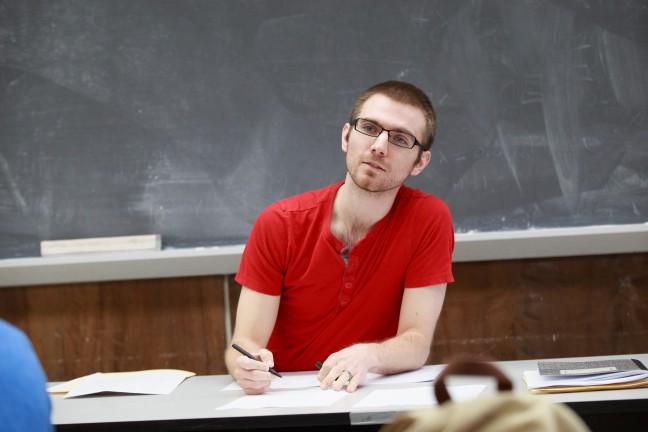Tuition increases cannot always be the solution for fixing budgets. Paying the equivalent of a year’s worth of full-time wages is not sustainable for students or the university, and we need to reform substantive and decisive actions over the next few years. Tuition hikes decrease diversity through discouraging new applicants, and can even price out students with additional financial aid opportunities. Articles about student loan debt crippling our nation’s economic future have become so common they are cliché.
But, I get it. The university is not receiving as much support from the state as it once did, and governors of all political affiliations are getting into the game of cutting education. University of Wisconsin has done a tremendous amount of work over the last half century to become a premier public institution in both the United States and the world, but we cannot afford to continue this rise on the backs of students already stretched thin.
Out-of-state and graduate students typically bear the brunt of these tuition increases for obvious reasons. Few parents of these students are actually voting for the legislature that approves the tuition increases, so they are easy targets. However, balancing the budget on the backs of students — any students — will not be a permanently sustainable solution for the university.
As Associated Students of Madison Chair Genevieve Carter noted in ASM’s response to Chancellor Blank’s initial proposal, raising out-of-state tuition without also raising in-state tuition is only due to the current tuition freeze that Gov. Scott Walker instituted across the UW System. When that tuition freeze expires, we can surely expect a spike in tuition for residents to “make up ground” on non-resident tuition, or some nonsense like that.
Similarly, raising tuition on graduate students seems innocuous because many graduate students receive a form of tuition remission as part of their program packages. However, many graduate students do not receive these benefits and must bear these increases on top of their undergraduate student loans as well. Graduate students also commit to a school until their program is complete, thus locking these students into an increase they did not anticipate when choosing UW.
There are other ways to balance a budget and there should be serious and open discussions with all of our options on the table.
Instead of raising tuition, we could get additional state support. How did we become a state with a world class university that everyone loves to cheer in Camp Randall or the Kohl Center, but when it comes to paying the maintenance bill, those same “fans” say tough shit? With a group of leaders in the Capitol who would prefer to admire each other for their conservative plumage like birds of dystopia, we cannot count on state funding keeping pace with UW’s needs.
We could close a campus. This is an unpopular option, and for good reason. We need more, not less, higher education in a state that’s dead last for job growth in the Midwest but closing a campus, like the state did to UW-Medford in 1981, could solve some problems. This is not a long-term solution though. Costs at larger institutions will continue to rise and then we will be back in the same position of raising tuition. It would also be incredibly unpopular in the legislature as no one wants to lose the jobs or revenue that a UW institution provides.
The university could cut services and programs. While also unpopular, UW already specializes at specific schools in some programs. UW-Milwaukee has the only architecture program, for example. For specialized and expensive degrees, UW could consolidate programs. This would reduce faculty costs and encourage efficiencies in individual universities. This is also very unlikely because each university would loath to lose programs and it would be politically unpopular on each campus.
Without raising tuition, consolidating programs and campuses or gaining additional state support, UW would need to cut quality. Cutting faculty salaries from those who are most highly compensated would save money at the cost of our academic reputation. We could no longer strive to be world class and instead settle for the simple job training engine that Walker and friends want. Have we reached the end of Wisconsin’s excellence?
I don’t like tuition increases because it too often ignores deeper problems for the sake of covering a short-term budget gap. Here again, we see a proposal to raise tuition to match our peers which is all fine and good for the next few years. But where do we go from there? I’d like to think the regents and chancellors will come up with some good solutions in the next few years to prevent another hike when we need to “match our peers” again. We can do better. We need to do better.
Adam Johnson ([email protected]) is a Master’s candidate at the La Follette School of Public Affairs.














